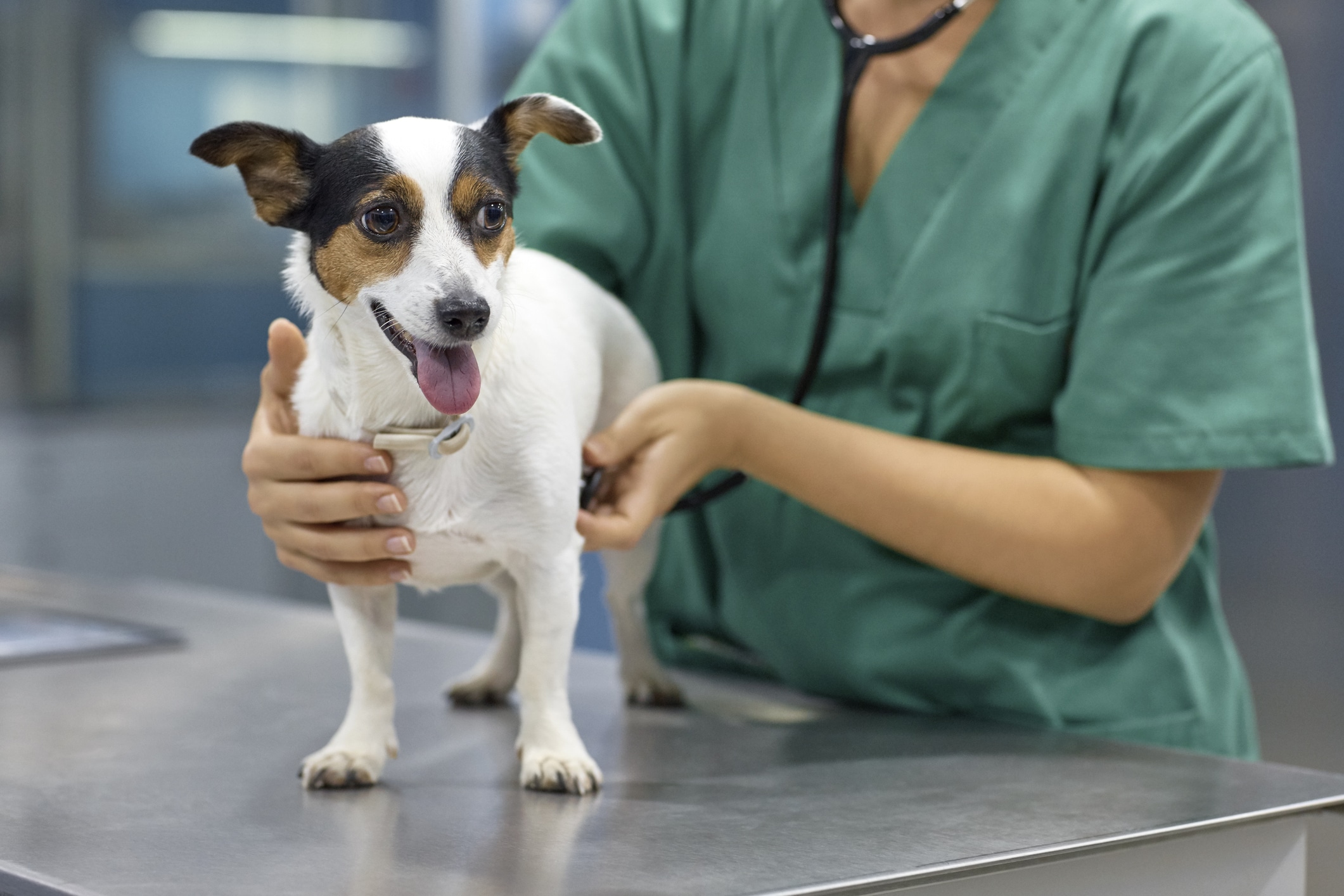Caring for our furry family members, you know, it's a big part of life for many of us. We want them to be happy, to be playful, and most of all, to be well. Sometimes, though, little things, like tiny organisms we can't even see, can throw a wrench into that picture. It's almost like they have their own secret world, these microscopic beings, and some of them can cause a bit of trouble for our beloved canine companions.
Think about it, our dogs are out there, exploring the yard, meeting other pups, maybe even sniffing around places we'd rather they didn't. This means they can pick up all sorts of things, and among them are different kinds of tiny life forms, like bacteria. These little critters, basically, are everywhere, and some of them, well, they're just part of the normal environment. But then there are others that, if they get into the wrong spot or in too many numbers, can make a dog feel pretty rotten.
One particular group of these tiny life forms, called *Streptococcus*, is something you might have heard about in connection with people, like with a sore throat, but there's also a specific kind, *Streptococcus zooepidemicus*, that can affect dogs. It's not something to panic about, obviously, but knowing a little bit about it, what it is, and what it might mean for your dog, can really help you keep them in tip-top shape. This article, in a way, aims to shed some light on this particular germ and what it could mean for your dog's well-being.
- Aphasia Apps
- Will Smith Upcoming Movies 2025
- Law And Order Svu Jennifer Love Hewitt
- Tattoos To Honor Your Mom
- Lawrence Stroll Girlfriend
Table of Contents
- What is Streptococcus, anyway?
- The Many Kinds of Streptococcus and Their Connection to Dogs
- How Does Streptococcus Zooepidemicus Get Around?
- Recognizing Signs of Streptococcus Zooepidemicus in Dogs
- Can We Stop Streptococcus Zooepidemicus From Affecting Our Dogs?
- Helping Dogs Recover From Streptococcus Zooepidemicus
- Why is Knowing About Streptococcus Zooepidemicus Important for Dog Owners?
- Every Dog's Health and Streptococcus Zooepidemicus
What is Streptococcus, anyway?
So, when we talk about *Streptococcus*, we're really talking about a whole family of tiny, round-shaped bacteria. They tend to grow in chains, kind of like a string of beads, which is actually where their name comes from – it means "twisted berry." This group of bacteria, as a matter of fact, is pretty common, found in all sorts of places, and some types live harmlessly in and on animals, including us. But then, you know, there are other types that can cause various sorts of sicknesses.
My text tells us that *Streptococcus* is a genus of bacteria responsible for many human infections, and it's known for its diverse types and the array of diseases it can cause. This really means that while they all share the *Streptococcus* family name, their specific jobs and effects can vary quite a bit. For example, one type might cause a simple throat irritation in people, while another might lead to a more serious problem. It’s pretty much the same principle when we think about our dogs; different kinds of these bacteria can have different impacts.
Understanding that *Streptococcus* isn't just one single thing, but a whole collection of related germs, is pretty important. It helps us appreciate why some forms might be a big deal and others not so much. This family, essentially, has members that are very different from each other in terms of how they behave and what kind of problems they might bring about. Knowing this, we can, in a way, approach the idea of *Streptococcus zooepidemicus* in dogs with a bit more perspective.
- New Sandwich Dunkin Donuts
- Luke Did That Exposed
- Gold Colored Tattoos
- Textured Wool Rug
- Who Shot Cheyenne And Zach
The Many Kinds of Streptococcus and Their Connection to Dogs
As we were just saying, the *Streptococcus* family is really quite large, with many different members. My text points out that one type, *Streptococcus pyogenes*, also called Group A *Streptococcus*, is the culprit behind strep throat in people. Then there are other types, like Group B, that can cause different kinds of issues, perhaps even blood infections. So, you see, it's not just one uniform bug. This variety, you know, extends to the kinds of *Streptococcus* that can be found in animals, including our canine friends.
*Streptococcus zooepidemicus* is one of these specific types that has a particular connection to animals, hence the "zoo" part of its name. It's often found in horses, for instance, but it can also affect dogs. This particular strain, basically, is one that dog owners might hear about if their pet seems unwell and a veterinarian is looking into the cause. It's not as commonly discussed as, say, kennel cough, but it's definitely something to be aware of, especially if your dog is showing signs of feeling under the weather.
The key takeaway here, in some respects, is that just because a dog has *Streptococcus zooepidemicus* doesn't automatically mean they'll be terribly sick. Like many bacteria, it can sometimes be present without causing major problems. However, under certain conditions, perhaps when a dog's natural defenses are a bit down, or if the bacteria gets into a place it shouldn't be, it can certainly lead to a range of health issues. It's a bit like how some people carry certain germs without ever getting sick, while others, you know, might develop symptoms.
How Does Streptococcus Zooepidemicus Get Around?
When we think about how bacteria spread, it's usually through pretty simple ways, really. For something like *Streptococcus zooepidemicus* in dogs, it's often about direct contact with an infected animal or with things that have been touched by an infected animal. This could mean nose-to-nose greetings between pups, or sharing water bowls, or even just being in the same space where an infected dog has been. It's pretty much how many common germs travel from one living thing to another.
Think about it, a dog might cough or sneeze, and tiny droplets carrying the bacteria can then be inhaled by another dog nearby. Or, perhaps, a dog with a sniffly nose might rub against a toy, and then another dog picks up that toy and puts it in their mouth. These are all pretty common scenarios, as a matter of fact, for how any kind of germ, including *Streptococcus zooepidemicus*, can find its way from one host to another. It’s why places where many dogs gather, like dog parks or boarding kennels, can sometimes be spots where these kinds of things circulate a bit more freely.
It’s also worth remembering that surfaces can hold these tiny organisms for a period. So, if an infected dog touches something, or if there's a bit of discharge, the bacteria might linger on that surface. Another dog then comes along, sniffs or licks that spot, and that's another potential way for the bacteria to be passed on. So, in a way, keeping things clean, especially in shared dog spaces, can play a role in limiting the spread of things like *Streptococcus zooepidemicus*. It's pretty basic hygiene, really, but it makes a difference.
Recognizing Signs of Streptococcus Zooepidemicus in Dogs
My text mentions that symptoms vary with the organ, and this is absolutely true for *Streptococcus zooepidemicus* in dogs. Because these bacteria can potentially affect different parts of a dog's body, the signs you see might be quite varied. It's not like there's one single, obvious symptom that screams "Streptococcus!" Instead, you might notice a general change in your dog's usual behavior or appearance, which is why paying close attention to your pet is so important.
For instance, if the bacteria are affecting your dog's breathing passages, you might notice a cough, maybe some sneezing, or even a bit of a runny nose. If it's impacting another system, perhaps they might seem lethargic, or have a reduced interest in food, or just generally seem "off." Sometimes, you know, there might be a fever, or they might just seem unusually quiet and not want to play. These are all general indicators that something isn't quite right, and they could, in some respects, point to a bacterial issue like one caused by *Streptococcus zooepidemicus*.
It’s really important to remember that these signs are not unique to *Streptococcus zooepidemicus*. Many different health problems can cause similar symptoms. So, if you notice any of these changes in your dog, the very best thing to do is to get them checked out by a veterinarian. They're the ones who can figure out what's really going on. Trying to guess what it is on your own can, honestly, delay the right kind of help for your dog. So, if your dog isn't acting like themselves, definitely get them looked at.
Can We Stop Streptococcus Zooepidemicus From Affecting Our Dogs?
The good news is that there are steps we can take to help keep our dogs healthy and reduce the chances of them picking up infections, including those caused by *Streptococcus zooepidemicus*. My text says to learn how they can be prevented and treated, and prevention is often about good, sensible care for your pet. It's not about creating a sterile bubble around them, but rather about practicing some basic habits that support their overall well-being and reduce exposure to germs.
One of the most straightforward ways to help prevent the spread of bacteria like *Streptococcus zooepidemicus* is through good hygiene. This means regularly cleaning your dog's food and water bowls, keeping their bedding clean, and generally tidying up their living spaces. If your dog plays with toys that are shared with other dogs, it's a good idea to clean those regularly too. Basically, anything that many dogs might come into contact with should be kept as clean as possible. This can, in a way, break the chain of transmission for these tiny organisms.
Another important aspect of prevention is making sure your dog has a strong natural defense system. This means providing them with a good diet, making sure they get enough exercise, and keeping up with their regular vet check-ups. A healthy dog, you know, with a well-functioning natural defense, is generally better equipped to fend off all sorts of germs, including *Streptococcus zooepidemicus*, even if they do come into contact with them. It’s like building up their internal resilience, so they can better handle whatever comes their way.
Helping Dogs Recover From Streptococcus Zooepidemicus
If a dog does get sick with *Streptococcus zooepidemicus*, the next step, obviously, is to help them get better. My text mentions that these infections can be treated, and that's absolutely true. The first and most important thing to do is to take your dog to the veterinarian. They're the ones who can properly diagnose what's going on and then recommend the right course of action. Self-diagnosing or trying to treat your dog at home without professional guidance is, honestly, not a good idea.
A veterinarian will likely perform some tests to confirm if *Streptococcus zooepidemicus* is indeed the cause of your dog's illness. Once they have a clear picture, they can then prescribe the most appropriate treatment. For bacterial infections, this often involves specific medicines that target the bacteria. It's really important to follow the veterinarian's instructions very, very carefully when giving any kind of medicine to your dog. This means giving the right amount, at the right times, and for the full duration, even if your dog seems to be feeling better before the medicine runs out.
Beyond the specific medicines, supporting your dog's overall comfort and recovery is also key. This might mean making sure they have a quiet, warm place to rest, encouraging them to drink water, and perhaps offering easily digestible food if their appetite is low. Your vet will give you specific advice tailored to your dog's situation. The goal, basically, is to help your dog's body fight off the infection and get back to feeling like their old self. It’s about providing good, supportive care alongside the medical treatment.
Why is Knowing About Streptococcus Zooepidemicus Important for Dog Owners?
So, why go through all this about *Streptococcus zooepidemicus* in dogs? My text says that understanding *Streptococcus* is crucial for effective management, given its diverse types and the array of diseases it can cause. This applies directly to our pets. Knowing about this specific type of bacteria, even if it seems a bit technical, simply helps us be better, more prepared guardians for our dogs. It's about being informed, not necessarily becoming a veterinary expert.
For one thing, being aware means you're more likely to recognize if something seems off with your dog. If you know that a persistent cough or a general lack of energy could be a sign of something like *Streptococcus zooepidemicus*, you're more likely to seek professional help sooner rather than later. Early detection and treatment, you know, can often make a big difference in how quickly and completely a dog recovers from an illness. It's about being proactive rather than reactive.
Also, knowing about how these bacteria spread helps you take practical steps to prevent them. Things like cleaning shared spaces, keeping up with vaccinations, and ensuring your dog has a generally healthy lifestyle all contribute to reducing their risk. It's about empowering yourself with knowledge so you can make choices that support your dog's health every single day. This kind of awareness, in a way, is just another part of being a really good dog parent.
Every Dog's Health and Streptococcus Zooepidemicus
Ultimately, the health of every dog is a unique thing, affected by many factors. While *Streptococcus zooepidemicus* is one of the many things that can potentially impact a dog's well-being, it's part of a bigger picture. My text reminds us that symptoms vary with the organ, and that understanding these bacteria is crucial. This really means that vigilance and a good relationship with your veterinarian are your best tools. You know your dog better than anyone, and your observations are incredibly valuable.
It's about having a general awareness of potential health challenges, including bacterial ones, without letting it cause undue worry. Most dogs live perfectly healthy lives, and many never encounter significant issues with *Streptococcus zooepidemicus*. However, being informed means that if your dog does show signs of illness, you're not caught completely off guard. You can, basically, react calmly and appropriately, getting them the help they need.
So, whether it's about *Streptococcus zooepidemicus* or any other health concern, the core message is always the same: pay attention to your dog, provide them with good care, and don't hesitate to consult with a veterinary professional if you have any concerns. They are your best resource for keeping your dog happy and healthy for years to come. It’s pretty much the foundation of responsible pet ownership, really, and it makes all the difference for our furry friends.
Summary: This article talked about *Streptococcus zooepidemicus* in dogs, explaining that *Streptococcus* is a group of diverse bacteria, some of which can cause illness in animals. We discussed how this specific type of bacteria can spread, often through contact between dogs or with contaminated items. The piece covered common signs that might suggest a dog is unwell, noting that symptoms can differ depending on the body part affected. We also looked at ways to help prevent these kinds of infections through good hygiene and general care, and what steps to take for treatment, emphasizing the importance of veterinary help. The overall message highlighted why it's helpful for dog owners to know about these things to keep their pets well.
- Is Flo Still Alive From Alice
- Loving Diana
- How To Play Jessie
- Meaning Of The Name Zaya
- Dropping Braids


